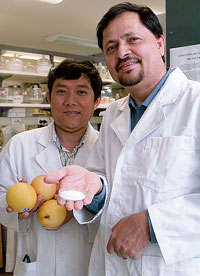 Researchers at the University of Queensland have developed a technology that will dramatically improve the safety, efficiency and effort involved in controlled ripening of fruit.
Researchers at the University of Queensland have developed a technology that will dramatically improve the safety, efficiency and effort involved in controlled ripening of fruit.
Nov 27th, 2012
Read more
Scientists at the U.S. Department of Energy's National Renewable Energy Laboratory (NREL) and the BioEnergy Science Center (BESC) combined different microscopic imaging methods to gain a greater understanding of the relationships between biomass cell wall structure and enzyme digestibility, a breakthrough that could lead to optimizing sugar yields and lowering the costs of making biofuels.
Nov 27th, 2012
Read more
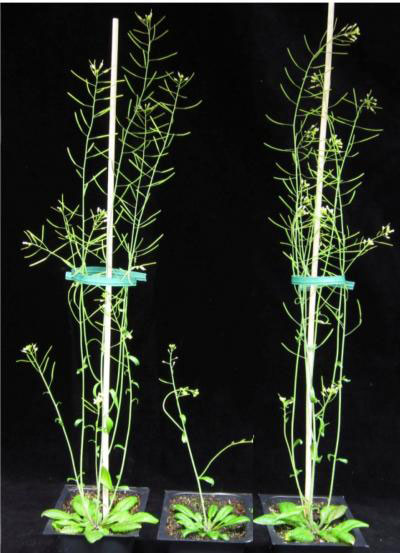 With increasing demands for sustainable energy, being able to cost-efficiently produce biofuels from plant biomass is more important than ever. However, lignin and hemicelluloses present in certain plants mean that they cannot be easily converted into biofuels. A recent study appears to have solved this problem, using gene manipulation techniques to engineer plants that can be more easily broken down into biofuels.
With increasing demands for sustainable energy, being able to cost-efficiently produce biofuels from plant biomass is more important than ever. However, lignin and hemicelluloses present in certain plants mean that they cannot be easily converted into biofuels. A recent study appears to have solved this problem, using gene manipulation techniques to engineer plants that can be more easily broken down into biofuels.
Nov 26th, 2012
Read more
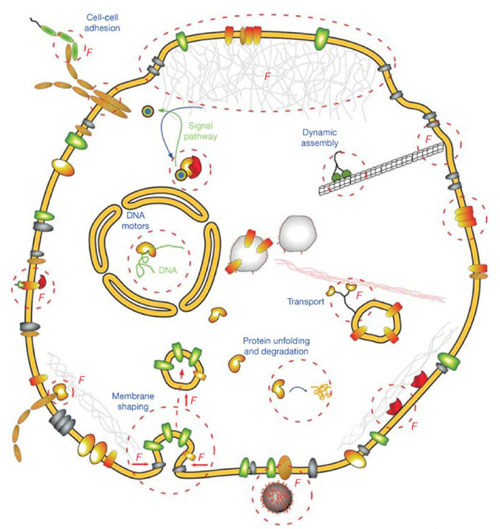 Scientists in Spain employed computational techniques to improve the characterization of proteins. The system they developed has allowed them to predict, for example, the relationship between two human proteins and telomeres, which led to their possible implication in cellular aging and the development of cancer; this awaits experimental verification.
Scientists in Spain employed computational techniques to improve the characterization of proteins. The system they developed has allowed them to predict, for example, the relationship between two human proteins and telomeres, which led to their possible implication in cellular aging and the development of cancer; this awaits experimental verification.
Nov 26th, 2012
Read more
New research has shown that these types of implants, made of a biocompatible synthetic material, are colonized within two months by neural progenitor cells and irrigated by new blood vessels.
Nov 26th, 2012
Read more
 A European project investigated the effect of brown spider venom on the structure and biophysical properties of cellular membranes. By using state-of-the-art fluorescent techniques, scientists succeeded in directly visualising venom-induced changes in cells.
A European project investigated the effect of brown spider venom on the structure and biophysical properties of cellular membranes. By using state-of-the-art fluorescent techniques, scientists succeeded in directly visualising venom-induced changes in cells.
Nov 25th, 2012
Read more
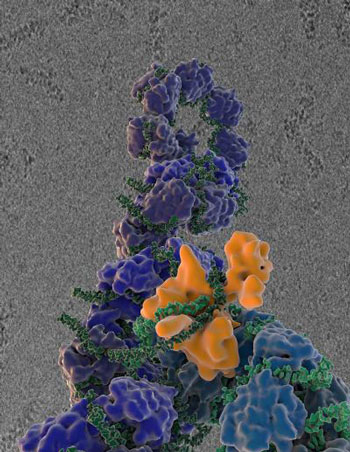 Scientists at The Scripps Research Institute (TSRI) have made a major advance in understanding how flu viruses replicate within infected cells. The researchers used cutting-edge molecular biology and electron-microscopy techniques to "see" one of influenza's essential protein complexes in unprecedented detail.
Scientists at The Scripps Research Institute (TSRI) have made a major advance in understanding how flu viruses replicate within infected cells. The researchers used cutting-edge molecular biology and electron-microscopy techniques to "see" one of influenza's essential protein complexes in unprecedented detail.
Nov 25th, 2012
Read more
 In an experiment performed on oilseed rape, scientists use RNAi suppression as a tool to switch off the enzyme responsible for oil breakdown, specifically for the duration of seed development. This results in the accumulation of around 8% more oil in the seed.
In an experiment performed on oilseed rape, scientists use RNAi suppression as a tool to switch off the enzyme responsible for oil breakdown, specifically for the duration of seed development. This results in the accumulation of around 8% more oil in the seed.
Nov 25th, 2012
Read more
A team led by IRB Barcelona's David Rossell and Patrick Aloy and by Anaxomics Biotech ranked among the best in the world for diagnosing and classifying patients in a blind test for four diseases.
Nov 23rd, 2012
Read more
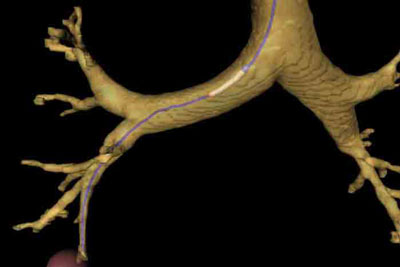 Systems to improve patient rehabilitation, methods that help detect diseases, and smart biomaterials for optimising treatments - scientific advances in the field of biomedical engineering are unstoppable. A number of leading UPC teams are carrying out research aimed at harnessing technology to improve people's health.
Systems to improve patient rehabilitation, methods that help detect diseases, and smart biomaterials for optimising treatments - scientific advances in the field of biomedical engineering are unstoppable. A number of leading UPC teams are carrying out research aimed at harnessing technology to improve people's health.
Nov 22nd, 2012
Read more
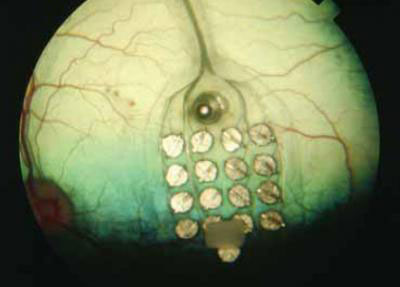 For the very first time researchers have streamed braille patterns directly into a blind patient's retina, allowing him to read four-letter words accurately and quickly with an ocular neuroprosthetic device.
For the very first time researchers have streamed braille patterns directly into a blind patient's retina, allowing him to read four-letter words accurately and quickly with an ocular neuroprosthetic device.
Nov 22nd, 2012
Read more
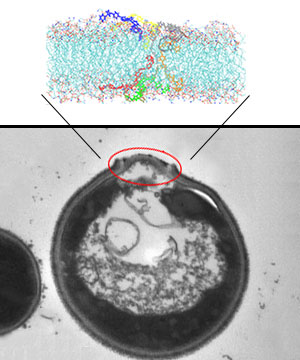 Our antibiotic armory is set to benefit from the development of short-chain synthetic polymers with potent efficacy against multidrug-resistant microbes.
Our antibiotic armory is set to benefit from the development of short-chain synthetic polymers with potent efficacy against multidrug-resistant microbes.
Nov 21st, 2012
Read more
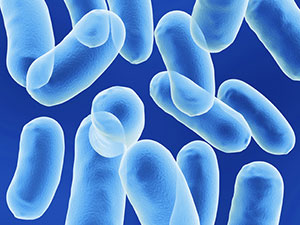 A signaling receptor that aids bacterial communication may provide a target for reducing virulence without antibiotics.
A signaling receptor that aids bacterial communication may provide a target for reducing virulence without antibiotics.
Nov 21st, 2012
Read more
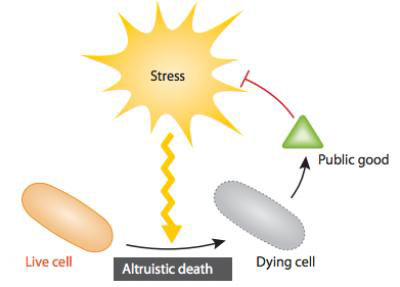 Scientists have engineered bacteria that are capable of sacrificing themselves for the good of the bacterial population. These altruistically inclined bacteria can be used to demonstrate the conditions where programmed cell death becomes a distinct advantage for the survival of the bacterial population.
Scientists have engineered bacteria that are capable of sacrificing themselves for the good of the bacterial population. These altruistically inclined bacteria can be used to demonstrate the conditions where programmed cell death becomes a distinct advantage for the survival of the bacterial population.
Nov 20th, 2012
Read more
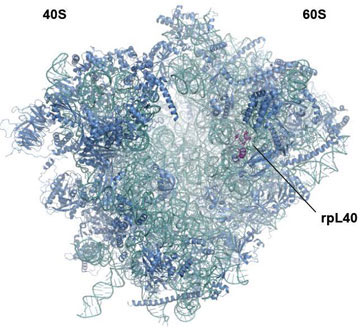 Ribosome regulates viral protein synthesis, revealing potential therapeutic target.
Ribosome regulates viral protein synthesis, revealing potential therapeutic target.
Nov 20th, 2012
Read more
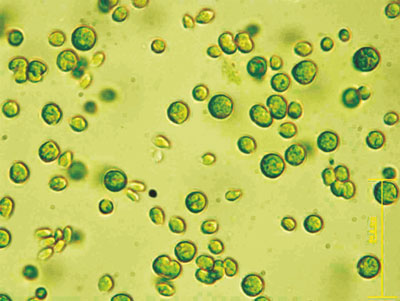 Scientists have confirmed for the first time that a plant, the green alga Chlamydomonas reinhardtii, not only engages in photosynthesis, but also has an alternative source of energy: it can draw it from other plants. This finding could also have a major impact on the future of bioenergy.
Scientists have confirmed for the first time that a plant, the green alga Chlamydomonas reinhardtii, not only engages in photosynthesis, but also has an alternative source of energy: it can draw it from other plants. This finding could also have a major impact on the future of bioenergy.
Nov 20th, 2012
Read more
 Researchers from the UK, USA and India, led by scientists at the University of York, are embarking on a major four-year project which aims to develop new strains of rice to help to feed millions of people.
Researchers from the UK, USA and India, led by scientists at the University of York, are embarking on a major four-year project which aims to develop new strains of rice to help to feed millions of people.
Nov 20th, 2012
Read more
Certain mutated cells keep trying to replicate their DNA - with disastrous results - even after medications rob them of the raw materials to do so.
Nov 19th, 2012
Read more
 Researchers at the University of Queensland have developed a technology that will dramatically improve the safety, efficiency and effort involved in controlled ripening of fruit.
Researchers at the University of Queensland have developed a technology that will dramatically improve the safety, efficiency and effort involved in controlled ripening of fruit.
 Subscribe to our Biotechnology News feed
Subscribe to our Biotechnology News feed











